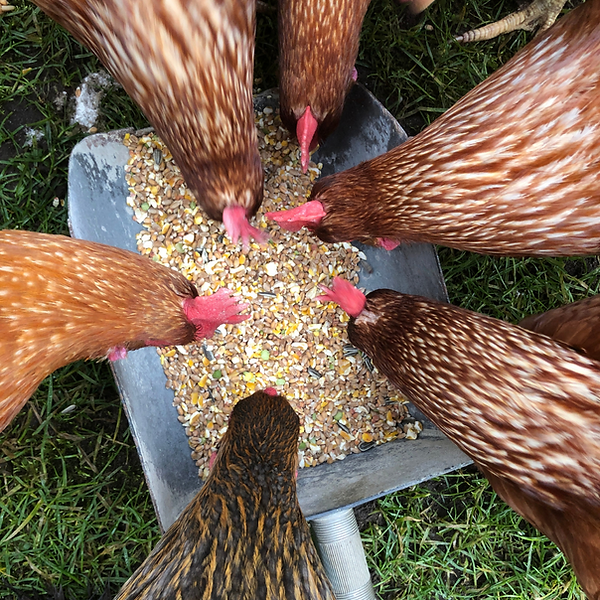Importance of calcium in laying hens
 Learn More
Learn MoreCalcium is an essential mineral for various physiological processes to take place in poultry, and in laying hens it is especially important for their productive aptitude. Calcium is necessary for the formation and maintenance of bones, muscles and nerves, but it is also important for egg production since the eggshell is mainly composed of calcium.
Layers have high calcium needs, as they use this mineral to produce an eggshell strong enough to ensure its viability. One egg contains approximately 2 grams of calcium, so a laying hen needs to consume at least 4 grams of calcium per day to meet her needs and assimilate it properly.
If laying hens do not consume enough calcium, or if it is not absorbed properly in the intestine, several problems may occur, including:
Skeletal weakness: bones become weak, and layers are more prone to bone fractures, such as the femur. In addition, the calcium reserves in the bones, which are necessary for shell formation during periods of high production or stress, also decrease.

Rickets: it occurs in birds, mainly young, when not enough calcium is received. Deformed and poorly developed bones are observed.
READ ALSO 24 remedies for slow growth in poultry
Alteration in egg production: laying hens that do not receive enough calcium can reduce their egg production or even stop laying. An increase in the percentage of broken eggs, and a decrease in the total egg weight, is also very frequent.
How to prevent calcium deficiency in laying hens
To ensure that laying hens receive sufficient calcium, it is important to provide them with a balanced diet that contains an adequate source of this mineral. In addition to providing a balanced diet, it is also important that hens have access to fresh, clean water at all times. Water is necessary for calcium absorption, as well as adequate levels of vitamin D.
READ ALSO An example of financial timelines for commercial layer production
On the other hand, the condition of the digestive mucus and the intestinal villi is fundamental, since it is in this organ that the absorption of the mineral will take place.
In poultry-breeding industry systems, as in layers, a series of phenomena occur that affect nutrition and mineral metabolism for different reasons. On one hand, there is a rapid transit due to the characteristics of the breeds used in commercial laying, which causes a loss of digestibility and alteration of the microbiota. This leads to poor nutrition and the appearance of dysbiosis, with proliferation of pathogens that can aggravate the problem by causing lesions in the digestive mucosa, altering the absorption of calcium and other minerals and nutrients.
Therefore, an adequate intestinal well-being must be guaranteed, and the mineral absorption at intestinal level must be promoted.
ATTENTION: Click “HERE” to join our WhatsApp group and receive More updates directly on your WhatsApp!
Conclusions
The needs for calcium and other minerals in laying hens are very high in order to maintain the different physiological processes but, above all, for the shell formation process. Providing dietary levels of calcium in the diet is essential, but ensuring its level of absorption is key to optimizing the mineral metabolism and producing an adequate eggshell, while maintaining mineral reserves in the musculoskeletal system














